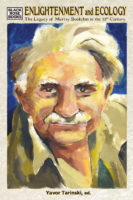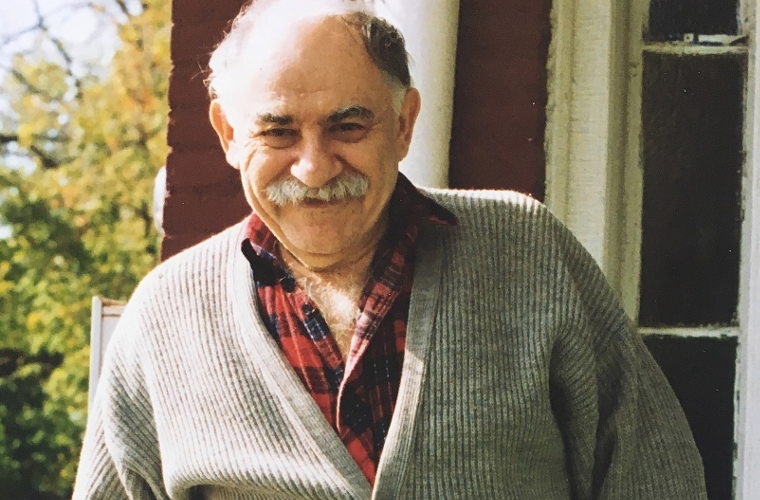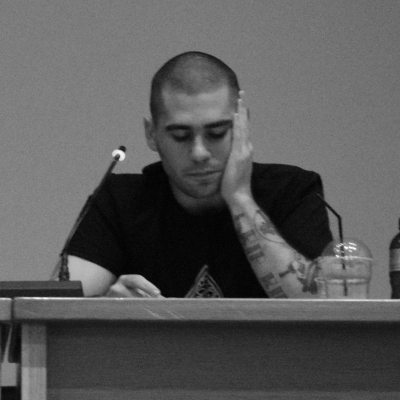 The following is an excerpt from the new book “Enlightenment and Ecology: The Legacy of Murray Bookchin in the 21st Century”, edited by Yavor Tarinski and published by Black Rose Books.
The following is an excerpt from the new book “Enlightenment and Ecology: The Legacy of Murray Bookchin in the 21st Century”, edited by Yavor Tarinski and published by Black Rose Books.
[Bookchin] was a true son of the Enlightenment in his respect for clear thought and moral responsibility and in his honest, uncompromising search for a realistic hope.-Ursula K. Le Guin[1]
Throughout his life, prophetic American philosopher Murray Bookchin created social ecology as a comprehensive social program for the challenges of our present era. Through tireless teaching, speaking, organizing, and writing, he presented a humanist vision of ecology based on community, direct democracy, and the better promises of the Enlightenment, showing how we could transform our society into one that is free and egalitarian.
Bookchin was not interested in creating a new political dogma or metaphysical ideology which would elevate him to an “armchair” intellectual status, while providing his audience with post-modern fancy word-salads. No, he was not interested in this and for that reason he was not afraid to engage in fierce political debates with other thinkers, as well as political tendencies. Bookchin did not hesitate to criticize the postmodernist nihilist politics of renowned philosophers of the recent past and also of his time like Nietzsche, Heidegger, Foucault, Derrida, Lyotard, Dcleuze, and Baudrillard.[2] He was also highly critical of political movements like anarcho-syndicalism[3] and Marxism.[4] Bookchin recognized their historic importance, but couldn’t overlook their role today—an attempt to fall back, in times of a terribly fragmented reality, onto obsolete, even archaic ideologies in a search for a sense of continuity and security.[5] And of course, he never hid his complete disagreement with New Age and mysticism-centered streams[6] that tend to pollute and depoliticize social movements up to today.
Bookchin’s abandonment of the anarchist label[7] was not a renouncement of his radical libertarian ideals, but a symbolic act at showing how little meaning there is in ideological dogmas and ideological purity. As a true child of Enlightenment, he was most interested in the power of vibrant and developing ideas. A classic ideology that remains entrapped in the spatiality and temporality of its birth was an obstacle to Bookchin to inspect ongoing developments in society and search for alternative paths. In this sense what really interested him the most was the question of genuine revolutionary social change and all of his work should be viewed as a call to action.
His thirst for knowledge and research resembled the spirit of the age of Enlightenment. Bookchin refused to remain entrapped in old ideological interpretations of the world, which is evident from his secular interest in ecology. Traditional leftist fascination with factories could not distract him from the environmental degradation provoked by industrial capitalism. Long before climate change took over the news and the human influence on it widely accepted, Bookchin began warning humanity about the disastrous environmental impact its activities had. But unlike various mysticists and primitivists who blamed human nature as such, he noted that it was the way human societies are organized that determines humanity’s attitude towards nature and began researching alternative forms of social organization that could pave the way towards an ecological society. His work produced a theoretical body that he termed Social Ecology, which nowadays is gaining momentum among climate activists.
Bookchin drew a direct link between social organization and human interaction with nature. The way societies treated their natural environment was a reflection of the way their interrelations were structured and thus suggested that statecraft and capitalism led to the creation of a reckless and wasteful anthropological type. He then explored linkages between direct democratic forms of societal organization that could result in a stewarding and symbiotic relation with nature.
As a true son of Enlightenment, he recognized the importance of science, which often led him to clash with deep ecologists and primitivists. He recognized the liberatory potential of technology but was in no way a technocrat. For Bookchin, the technological development in a capitalist setting was shaped by the latter’s values and driven to serve its purposes. Thus, technologies that could potentially be made to put an end to scarcity were instead used for profits and production of artificial shortages. He knew that the road to a post-scarcity society would have to be based on a libertarian political transformation.
Bookchin’s insistence on the importance of management of political power made him quite the distinctive thinker. He could see that it was not simply a question of a new economic model or a technological fix that could put an end to injustice and inequality. Instead, Bookchin throughout his life emphasized the need of ultimately creating a democratic setting in which power is being distributed horizontally and everyone can participate as equals in the management of all spheres of social life. This helped him develop a sophisticated political vision called libertarian municipalism, based on real historic experiences and aimed at provoking social change here and now. It is only logical that it has become a theoretical stepping stone for social movements around the world in the last decade, when fighting economic inequalities and political oligarchies.
Bookchin’s legacy has spread like a wildfire, especially in the last decade. The more social movements like the Indignados and Occupy experimented with forms of assembly democracy, the more their interest in Murray Bookchin’s ideas rose. Nowadays, his political influence is palpable among grassroots movements all around the world. From Western European and American protesters and climate activists, to Middle Eastern revolutionaries, the spirit of direct democracy and social ecology can be observed to take shape in popular attempts at reclaiming power away from the state and capital.
[1] Murray Bookchin. The Next Revolution: Popular Assemblies & The Promise of Direct Democracy (London: Verso 2015). p9.
[2] Murray Bookchin. Re-Enhancing Humanity (New York: Cassell, 1995). pp172-204.
[3] http://dwardmac.pitzer.edu/Anarchist_Archives/bookchin/ghost2.html
[4] https://www.marxists.org/archive/bookchin/1969/listen-marxist.htm
[5] Op. cit. 2
[6] Green Perspectives: Newsletter of the Green Program Project, nos. 4-5 (summer 1987)
[7] https://theanarchistlibrary.org/library/janet-biehl-bookchin-breaks-with-anarchism
Teaser photo credit: By Debbie Bookchin – Own work, CC BY-SA 4.0, https://commons.wikimedia.org/w/index.php?curid=65309620






